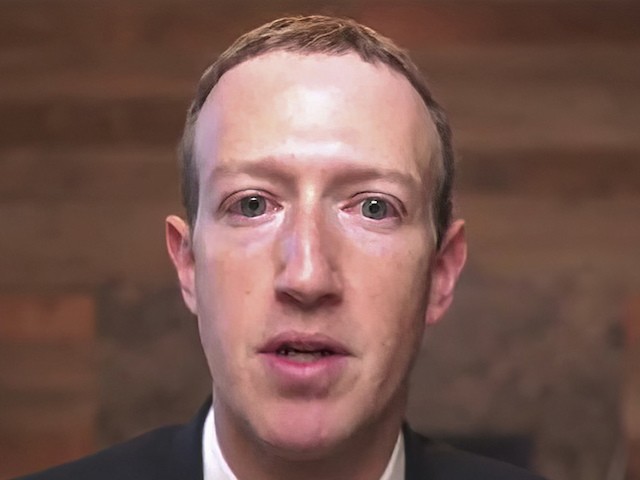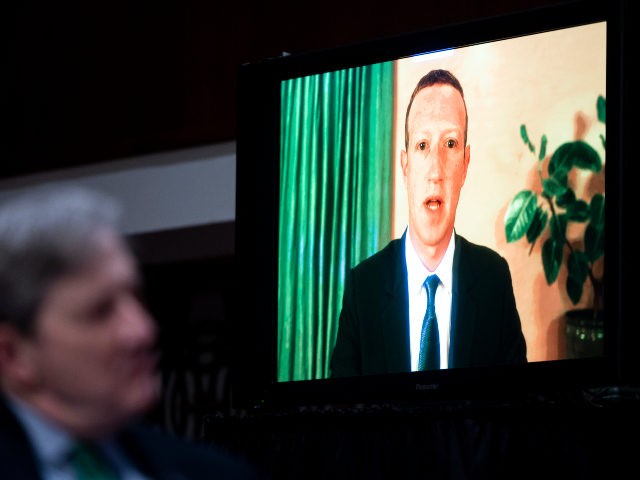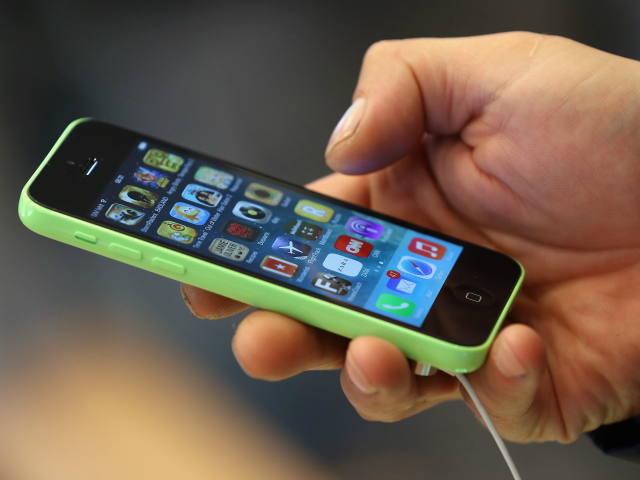In a recent article, the Washington Post outlines how deeply ingrained Facebook has become to parts of people’s everyday lives, even if they don’t actively use the platform. According to the Post, Facebook trackers are built into 61 of the 100 most popular smartphone apps, and their trackers watch what you do on 25 percent of websites.
In an article titled “There’s no escape from Facebook, even if you don’t use it,” the Washington Post outlines just how deeply Facebook has become ingrained in the everyday lives of most people. Even those that don’t use the platform are not safe from Mark Zuckerberg’s prying eyes.

In this image from video, Facebook CEO Mark Zuckerberg testifies during a House Energy and Commerce Committee hearing at the U.S. Capitol in Washington, Thursday, March 25, 2021. (House Energy and Commerce Committee via AP)
The Post spoke to a woman named Megan Borovicka who joined Facebook in 2013 and then forgot that she had an account, never logging in or using it. The average person assumes that the Masters of the Universe would stop collecting data on a dormant account, but nothing could be further from the truth.
According to an investigation by the Post, over the last decade, Facebook has collected extremely specific information about Borovicka and her life, learning everything about her from where she received her paycheck to her preferred brand of underwear.
Borovicka told the Washington Post: “I thought if I’m not using Facebook, I wouldn’t be in its orbit.” The issue lies in the fact that it’s not just Facebook’s app collecting information — Facebook has become so big that it has become a key component of millions of other businesses, apps, and websites that now collect information on Facebook’s behalf. So even if you’re not actively using the Facebook app or website, the company is still tracking you.
Facebook provides its business partners with tracking software that they then embed in apps and websites, user details are then sent to Facebook which it tries to match to your account. Across the 100 most popular smartphone apps, Zuckerberg’s tracking software is present in 61 of them, according to the app research firm Sensor Tower. Privacy software developer Ghostery also claims that the company has trackers in around 25 percent of websites.
The Washington Post writes:
I tried my own version of Borovicka’s experience by cutting Facebook and Instagram out of my life for two weeks and then tallying who sent it my data. But unlike her, I left its apps on my phone — untouched for a while, but present. (Below I’ll show you how I unearthed what Facebook knows, and how you can see it for yourself.)
While I was gone, Facebook got a notice when I opened Hulu to watch TV. Facebook knew when I went shopping for paint, a rocking chair and fancy beans. Facebook learned I read the websites What To Expect, Lullaby Trust and Happiest Baby. There’s no surprising Facebook when you’re expecting a baby.
Over two weeks, Facebook tracked me on at least 95 different apps, websites and businesses, and those are just the ones I know about. It was as if Facebook had hired a private eye to prepare a dossier about my life.
In an emailed statement to the Washington Post, Facebook addressed its tracking habits stating: “Our use of data from other apps and websites to inform advertising was commonplace in the industry when we introduced it. We’ve also provided more transparency and control to help people manage their data over the years — including a tool that lets people manage and view a summary of information Facebook receives about their activity on other apps and websites. We’re committed to further strengthening our privacy program, but privacy concerns are not antitrust concerns.”
Read more at the Washington Post here.
Lucas Nolan is a reporter for Breitbart News covering issues of free speech and online censorship. Follow him on Twitter @LucasNolan or contact via secure email at the address lucasnolan@protonmail.com


COMMENTS
Please let us know if you're having issues with commenting.